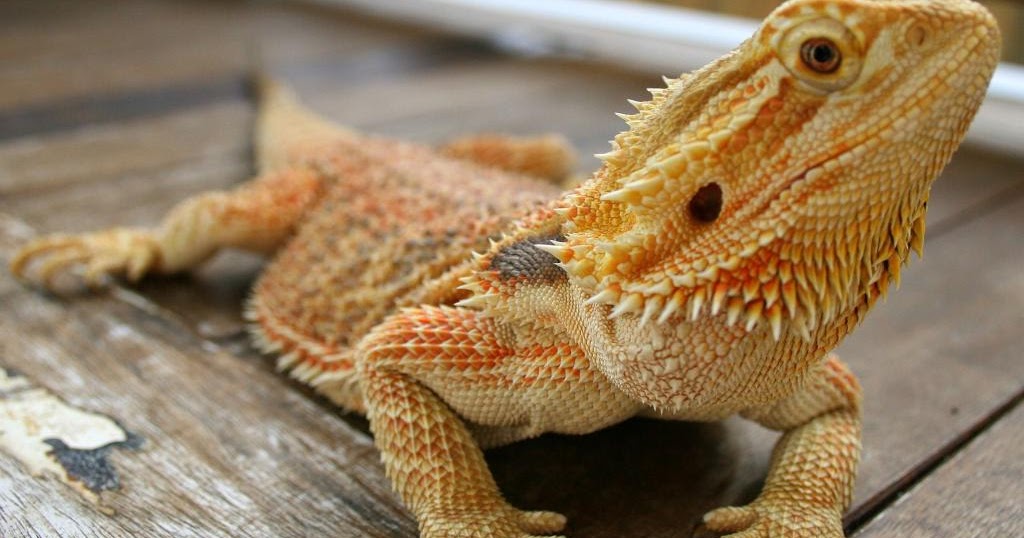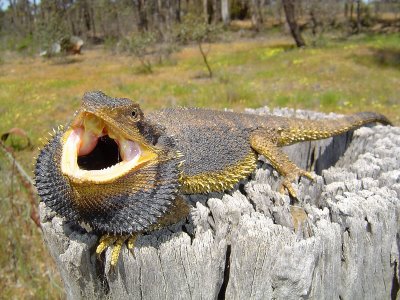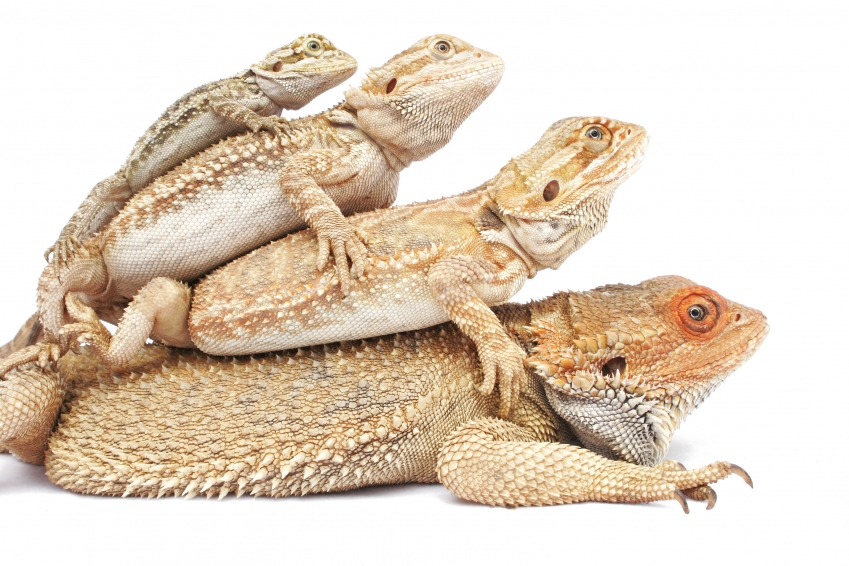10 Essential Tips for Keeping Bearded Dragons: A Comprehensive Guide from Reptiles Magazine
10 Essential Tips for Keeping Bearded Dragons: A Comprehensive Guide from Reptiles Magazine
Bearded Dragons are one of the most popular pet reptiles in the world. These lizards are known for their docile nature, unique appearance, and easy care requirements. However, before you bring a Bearded Dragon into your home, there are a few things you need to know. In this article, we’ll cover 10 essential tips for keeping Bearded Dragons, with insights and recommendations from the experts at Reptiles Magazine.
1. Choose an Appropriate Enclosure
When it comes to keeping Bearded Dragons, a proper enclosure is essential. Depending on the size of your pet, you may need a terrarium that is at least 40 gallons in size. Reptiles Magazine recommends an enclosure that is at least two times as long as your dragon’s body, with a depth of around 18 inches.

Keep in mind that Bearded Dragons need room to move, climb, and bask under a heat source. An ideal enclosure will also have a top screen for ventilation, and a substrate that is easy to clean.
2. Provide the Right Temperature and Lighting
Bearded Dragons are cold-blooded creatures, which means they rely on external sources of heat to regulate their body temperature. To create a suitable environment, you’ll need to provide a basking spot with a temperature of around 100-110°F, and a cooler area of around 80°F. You can achieve this with a combination of heat lamps and under-tank heating pads.
In addition to heat, Bearded Dragons also need access to UVB lighting. This type of light is essential for their bone health and overall well-being. Reptiles Magazine recommends using a UVB bulb that covers at least two-thirds of the enclosure, and replacing it every 6-12 months.
3. Feed a Balanced Diet
Bearded Dragons are omnivores, which means they eat both plant and animal matter. A healthy diet for your pet should consist of about 75% vegetables and 25% insects or other proteins. Some of the best veggies to feed your dragon include collard greens, kale, bell peppers, and squash. For protein, you can feed crickets, mealworms, or dubia roaches.
It’s important to provide a variety of foods and avoid feeding live prey that is too big for your dragon to handle. You should also dust your dragon’s food with a calcium supplement to prevent metabolic bone disease.
4. Offer Enrichment and Stimulation
Bearded Dragons are intelligent creatures that benefit from mental stimulation and enrichment. You can provide this by offering a variety of climbing structures, hiding spots, and toys. You can even create an obstacle course for your dragon to navigate.

Just make sure any materials or decorations you use are safe for your dragon, and avoid overcrowding the enclosure.
5. Keep the Enclosure Clean
Cleanliness is crucial when it comes to keeping Bearded Dragons. You should spot-clean the enclosure daily, removing any uneaten food, feces, or shed skin. Every few weeks, you’ll need to do a thorough cleaning, including removing all substrate, disinfecting the enclosure, and replacing and sanitizing all furnishings.

Not only will a clean environment help your dragon stay healthy, it will also reduce odors and keep your home smelling fresh.
6. Handle Your Dragon Gently
Bearded Dragons can be tamed and enjoy human interaction, but you need to handle them with care. When picking up your dragon, use a gentle touch and support its entire body. Avoid pulling on the tail, which can cause injury or stress. And always wash your hands before and after handling to prevent the spread of bacteria.

If your dragon seems hesitant or shows signs of stress, such as darkening of the beard or hissing, give it some space and try again later.
7. Monitor Health and Behavior
Keeping a close eye on your Bearded Dragon’s health and behavior can help you catch any potential problems early on. Some signs of illness include lack of appetite, lethargy, weight loss, and abnormal behavior. You should also be aware of behaviors like black-bearding, gaping, or glass surfing, which can indicate stress or discomfort.

Regular check-ups with a reptile veterinarian can also help ensure your dragon stays healthy and happy.
8. Provide Adequate Humidity
Bearded Dragons come from arid habitats, but they still need some level of humidity to stay healthy. You can achieve this by providing a shallow water dish for them to soak in, or by misting the enclosure a few times a week. Just make sure the humidity levels don’t get too high, which can lead to respiratory infection or other health problems.

9. Observe Natural Behavior
Observing your Bearded Dragon’s natural behavior and habitat requirements can help you provide a more enriching and fulfilling environment. For example, Bearded Dragons are diurnal, which means they are active during the day and require a consistent light and temperature cycle. They also like to bask, climb, and dig in the substrate.

Providing a naturalistic setup with plenty of hiding spots, foliage, and other features can help your dragon feel more at home.
10. Do Your Research
Finally, one of the most important tips for keeping Bearded Dragons is to do your research. There is a wealth of information available on the care and keeping of these fascinating creatures. Reptiles Magazine is a great resource, as are online forums and local reptile clubs. Make sure you are equipped with the knowledge and resources you need to provide your dragon with a happy, healthy life.

In conclusion, keeping Bearded Dragons can be a rewarding and enjoyable experience. By following these tips and guidelines from Reptiles Magazine, you can provide your pet with a safe and comfortable environment, while also avoiding common pitfalls and keeping them happy and healthy for years to come.
